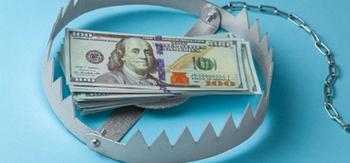
Key considerations for every physician before acquiring a practice
Opportunities will abound in a calmer economic climate, but start thinking of these questions now.
Deciding whether to buy your own practice is among the biggest financial decisions a physician or team of doctors will make over the course of a career in medicine.
When assessing a potential acquisition, a physician should research and fully assess all aspects of the targeted medical practice, notably: patient volume, timeliness of patient bill paying, condition of facilities and equipment, revenue and growth potential, location, economic health of the market, and recent sale prices of comparable operations, among others.
First things first: As the novel
Trending:
When the economic climate steadies, there will surely be opportunities. Demand for health care continues to steadily march upward as the population ages and medical advances drive continuously improving treatments and medications, adding to the appeal of ownership. At the same time, more doctors who own practices are nearing retirement age and likely will consider sales. Nearly a third of all doctors are between the
When the time comes, physicians should seek answers to these important questions as they examine the financial merits of a potential acquisition:
- What are the total costs and the most substantial expense drivers?
- Are these costs expected to climb in coming years and by how much?
- Are near-term upgrades to facilities and equipment needed?
- Will existing staff stay on and at what cost?
- How much revenue does the practice generate in a month and in a year? Does it cover all expenses by a healthy margin?
- What are the principal drivers of revenue? Are there potential new sources of income?
- What is the composition of the patient base? Is it growing?
- Does the practice’s accounts receivable aging report – a record that shows unpaid invoice balances and the duration for which they’ve been outstanding – show that an acceptable level of patients paying bills in timely fashion?
- Is the practice located in an economically healthy market? Is its population growth?
- Does the practice have strong market share? How competitive is the market?
- And, of course: How does the asking price stack up against recent, comparable sales in the market?
The answers to these questions will also help a buyer decide if the practice is a good investment. Often, a buyer will need a loan to finance and close a deal. An experienced banker should be well-positioned to provide counsel on potential acquisitions. A banker with significant experience in health care lending and knowledge of the market’s dynamics can both add value to decision-making and ensure fitting loan options.
An important part of the loan application process is a determination of how much a buyer can confidently borrow. This is based both on the borrower’s personal financial situation and the expected success of the practice.
Read More:
A banker will need the following from the buying physician to help determine this:
- A statement of assets and liabilities
- Last three years of tax filings
- Resume
- Medical license
And from the owner of the targeted practice, a banker will need to see:
- Three years of tax returns
- A comprehensive practice evaluation-patient base, revenue, demographics, competition
- Productivity by health care provider
- An updated accounts receivable aging report
For all the near-term challenges imposed by the coronavirus pandemic, there is an abundance of reason to believe physician practices will thrive over the long haul-most notably increasing demand for ever-improving care.
Clearly, patience is required in the near team. But there is little doubt that opportunity lies ahead for owners-and would-be owners-of physician practices.
Newsletter
Optimize your practice with the Physicians Practice newsletter, offering management pearls, leadership tips, and business strategies tailored for practice administrators and physicians of any specialty.








